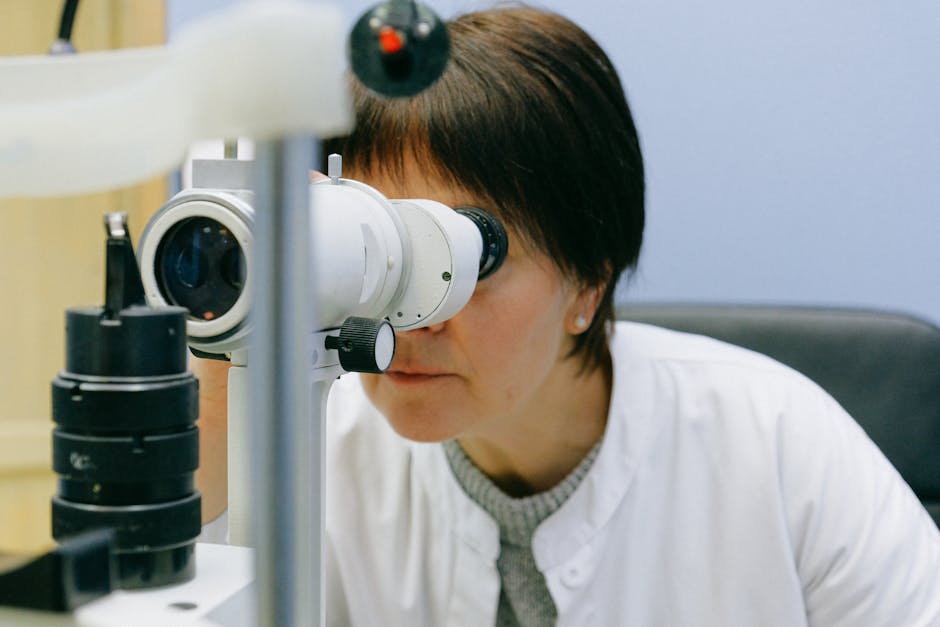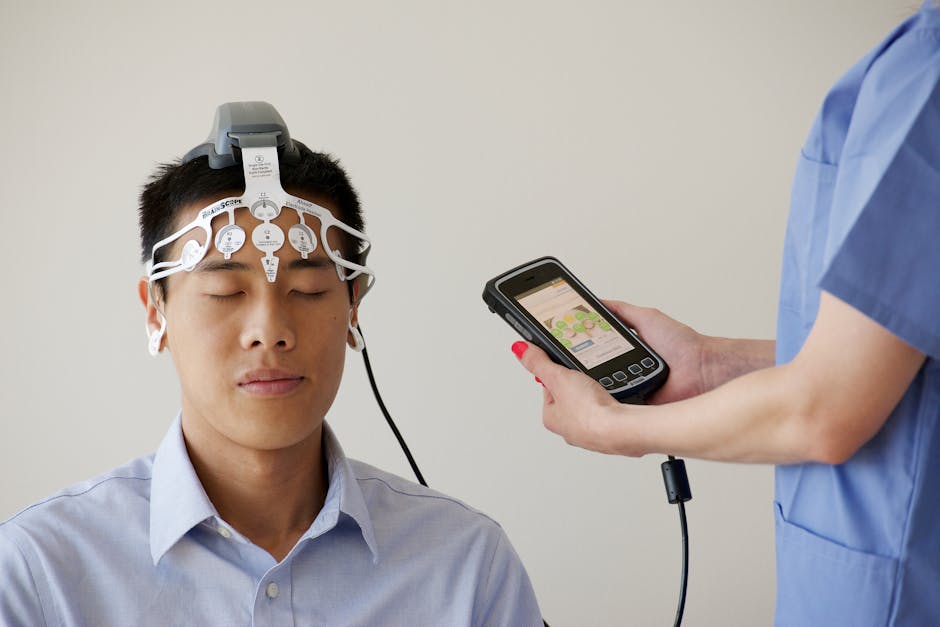Sheffield’s Healthcare and AI: Delivering Next-Gen Patient Care
Did you know that 90% of healthcare data has been generated in the last two years alone? You’re witnessing a digital revolution, and Sheffield’s at its heart, integrating AI to transform patient care.
Imagine receiving tailor-made treatments and battling chronic diseases with smart algorithms. You’re stepping into a future where AI doesn’t just support doctors—it revolutionises diagnosis and care.
Embrace the change as Sheffield leads in innovative healthcare, ensuring you’re healthier, longer.
Welcome to next-gen patient care.
Key Takeaways
- Integration of AI in healthcare systems in Sheffield
- Streamlined and precise approach to diagnosing diseases with AI algorithms
- Remote monitoring and wearable technology for chronic disease management
- Revolutionising healthcare processes for improved patient outcomes and personalised care in Sheffield
Revolutionising Diagnosis With AI

Harnessing artificial intelligence, you’re witnessing a transformative era in Sheffield where diagnosis accuracy and speed are reaching unprecedented levels. The integration of AI into healthcare systems is reshaping the landscape of patient care, allowing for a more streamlined and precise approach to diagnosing diseases. AI algorithms, trained on vast datasets, are augmenting the capabilities of medical professionals by providing them with tools that enhance their judgement with data-driven insights.
AI accuracy in medical diagnosis isn’t just a buzzword; it’s a game-changer. By rapidly analysing complex medical images and patterns with a level of detail that surpasses human ability, AI is minimising the likelihood of human error and paving the way for earlier and more accurate detection of conditions. This technological leap is crucial, especially in cases where every second counts, such as in the detection of malignant tumours or fast-moving infections.
Moreover, diagnostic speed is being supercharged by AI. You no longer have to endure anxious waits for results that traditionally took days or even weeks. AI-driven diagnostic tools are delivering results in a fraction of the time, often instantly. This expeditious processing not only bolsters the efficiency of healthcare services but also significantly improves patient outcomes by enabling quicker initiation of treatment.
AI-Enhanced Treatment Protocols

You’ll find that AI isn’t only revolutionising diagnosis in Sheffield’s healthcare system but also transforming treatment protocols with its predictive and prescriptive analytics. The implementation of AI in this sector isn’t a distant future—it’s happening now, and it’s making a significant impact.
Consider the following advancements:
-
AI Dosing: AI algorithms are optimising medication dosages with remarkable precision, tailoring treatments to individual patients’ needs. This reduces risks of adverse reactions and improves outcomes.
-
Robotic Surgery: Surgeons are being assisted by robotic systems, which are guided by AI to perform complex procedures with enhanced accuracy and minimal invasiveness.
-
Personalised Treatment Plans: AI is analysing vast datasets, enabling healthcare providers to design personalised treatment strategies based on a patient’s unique genetic makeup and lifestyle.
-
Continuous Monitoring: Wearables and other AI-powered devices offer real-time monitoring of patient health, allowing for adjustments in treatment protocols as needed.
These innovations represent a leap forward in patient care. By harnessing the power of AI, Sheffield’s healthcare professionals aren’t just treating illnesses more effectively; they’re also paving the way for a future where technology and human expertise combine to deliver unparallelled healthcare services.
Managing Chronic Diseases Smartly

As healthcare providers in Sheffield integrate AI into treatment protocols, they’re also revolutionising the management of chronic diseases, allowing you to experience more tailored and proactive care. Remote monitoring and wearable technology are at the forefront of this transformation, offering real-time insights into your health status.
With wearable devices, continuous data streams feed AI algorithms that analyse patterns and predict exacerbations before they become acute. This level of monitoring ensures interventions are timely, decreasing the likelihood of emergency room visits and hospital admissions.
The table below illustrates the impact of AI and wearable technology on chronic disease management:
| Feature | Benefit to You | Technological Innovation |
|---|---|---|
| Continuous Data Capture | Enables proactive health management | Wearable devices |
| Predictive Analytics | Anticipates health event likelihood | AI algorithms |
| Personalised Feedback | Provides customised health insights | Machine Learning Personalisation |
Personalised Care Through Machine Learning

Building on the foundation of wearable technology, machine learning takes your healthcare personalisation to the next level by finely tuning treatments and recommendations to your unique health profile. This advanced approach to healthcare isn’t just about reacting to symptoms; it’s about pre-emptively shaping your health journey with remarkable precision.
Let’s delve into how machine learning is revolutionising personalised care:
-
Predictive Analytics: By analysing vast datasets, machine learning algorithms can predict health events before they occur, allowing for proactive measures rather than reactive treatments.
-
Tailored Health Plans: Your digital health records and real-time data from wearables feed into systems that customise wellness plans specifically for you, considering your genetics, lifestyle, and even environmental factors.
-
Continuous Monitoring: Machine learning enables constant analysis of your health data, flagging anomalies and adjusting treatment plans dynamically, ensuring you’re always on the optimal path to wellness.
-
Data Privacy: Ensuring the confidentiality of your health information is paramount. Machine learning helps in the detection and prevention of unauthorised data access, safeguarding your sensitive medical details.
These innovations promise not just a transformation in patient care but also pose significant implications for Sheffield’s healthcare workforce. Let’s explore how the integration of AI will reshape the roles and skills required in the medical field.
Impact on Sheffield’s Healthcare Workforce

Your role in Sheffield’s healthcare sector may soon evolve as AI reshapes the skills and duties required of medical professionals. As cutting-edge algorithms and predictive analytics become commonplace, you’ll witness a significant shift towards Workforce Adaptation.
The integration of AI won’t just streamline tasks; it will also necessitate a new breed of healthcare workers who are adept at collaborating with advanced technologies. You’ll need to be tech-savvy, agile in learning new systems, and proficient in interpreting complex data to enhance patient outcomes.
Furthermore, AI’s ascent in healthcare ushers in pressing Ethical Considerations. You’ll be at the forefront of navigating privacy concerns, algorithmic bias, and the moral implications of AI-assisted decision-making. It’s imperative that you maintain a vigilant stance on ethical standards, ensuring that patient welfare remains paramount amidst the digital transformation.
Embrace the change; you’re the harbinger of an innovative era in Sheffield’s medical care. By harnessing AI responsibly, you’ll not only elevate your professional expertise but also contribute to a future where technology and humanity converge for the greater good of patient health.
Frequently Asked Questions
How Is Patient Privacy and Data Security Being Addressed in the Integration of AI Within Sheffield’s Healthcare System?
You’re ensured privacy through robust AI transparency protocols and data anonymization techniques, which are foundational in safeguarding your sensitive information during AI integration within healthcare systems. These measures are at the innovation forefront.
What Are the Ethical Considerations and Guidelines in Place for AI Decision-Making in Patient Care Scenarios in Sheffield?
You must consider AI biases and ensure informed consent when AI aids decision-making in patient care. Ethical guidelines demand transparency, accountability, and continual innovation to address these critical, ever-evolving technological challenges.
How Is Healthcare Access and Equality Ensured in Sheffield When Implementing Advanced AI Technologies That May Be Costly?
You’ll need to consider AI training and cost analysis to ensure healthcare access remains equal. Innovative solutions can offset expenses, making advanced tech like AI affordable and accessible to all in Sheffield.
What Are the Provisions for Patients in Sheffield Who Are Not Comfortable With AI Involvement in Their Healthcare?
In Sheffield, 25% resist AI in healthcare, prompting a blend of AI scepticism with traditional alternatives. You’re guaranteed choice, ensuring tech innovation doesn’t overshadow personal comfort in treatment options.
How Is Sheffield’s Healthcare System Planning to Manage the Potential Increase in Cyber Threats as AI Becomes More Integrated Into Patient Care?
You’ll see heightened AI regulation and advanced threat intelligence systems to safeguard against cyber threats as AI integration deepens, ensuring innovative yet secure patient care within the evolving technological landscape.
Conclusion
You’re now standing on the brink of a healthcare revolution in Sheffield, where AI isn’t just a buzzword—it’s the backbone of patient care. With smart algorithms, you’ll navigate through illness with the precision of a GPS, ensuring no stone is left unturned in your journey to wellness.
As technology and empathy intertwine, you’re not just a chart number; you’re a unique story, and Sheffield’s healthcare is ready to read every page.
Welcome to the future—personalised, efficient, and undeniably human.
Contact us to discuss our services now!


